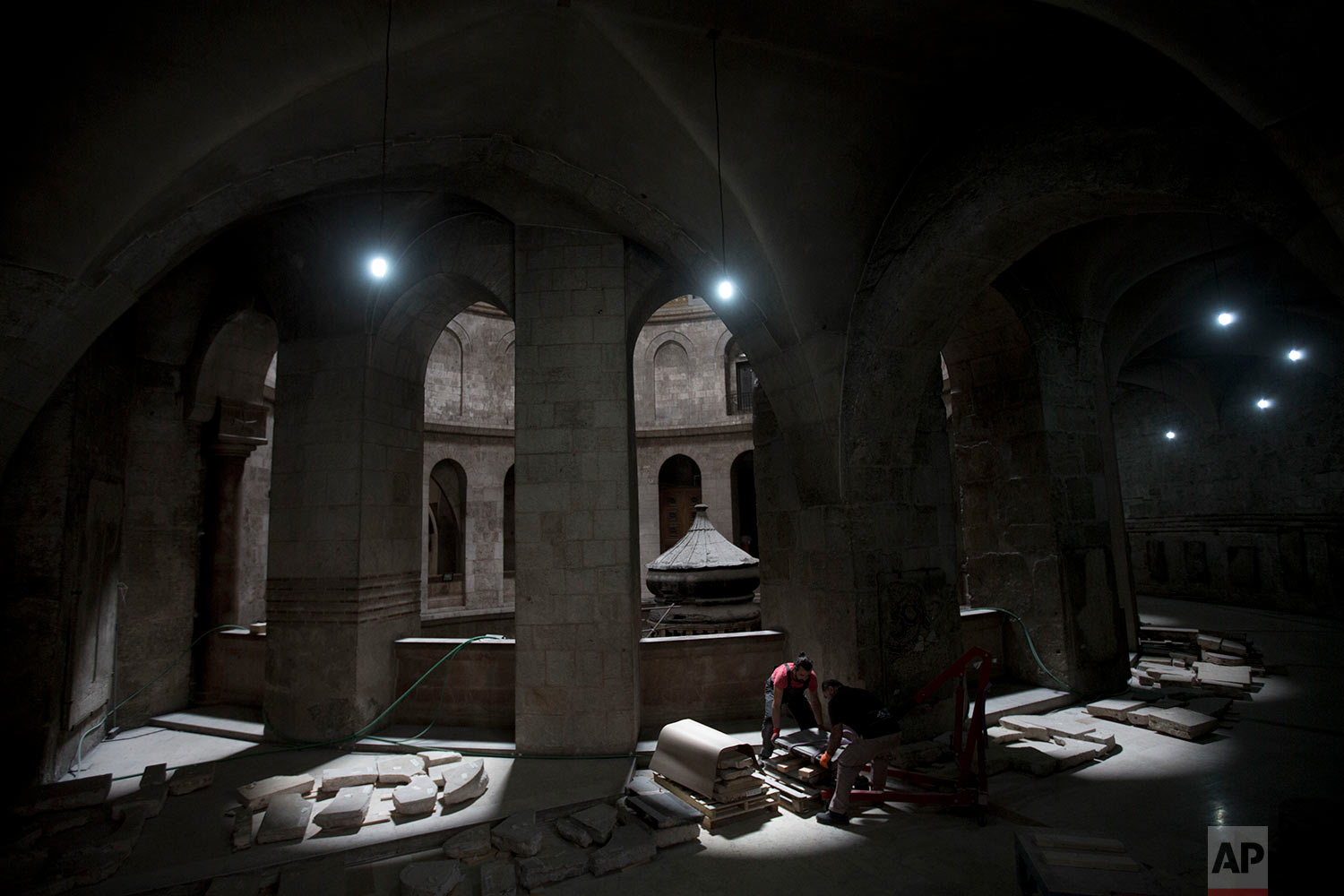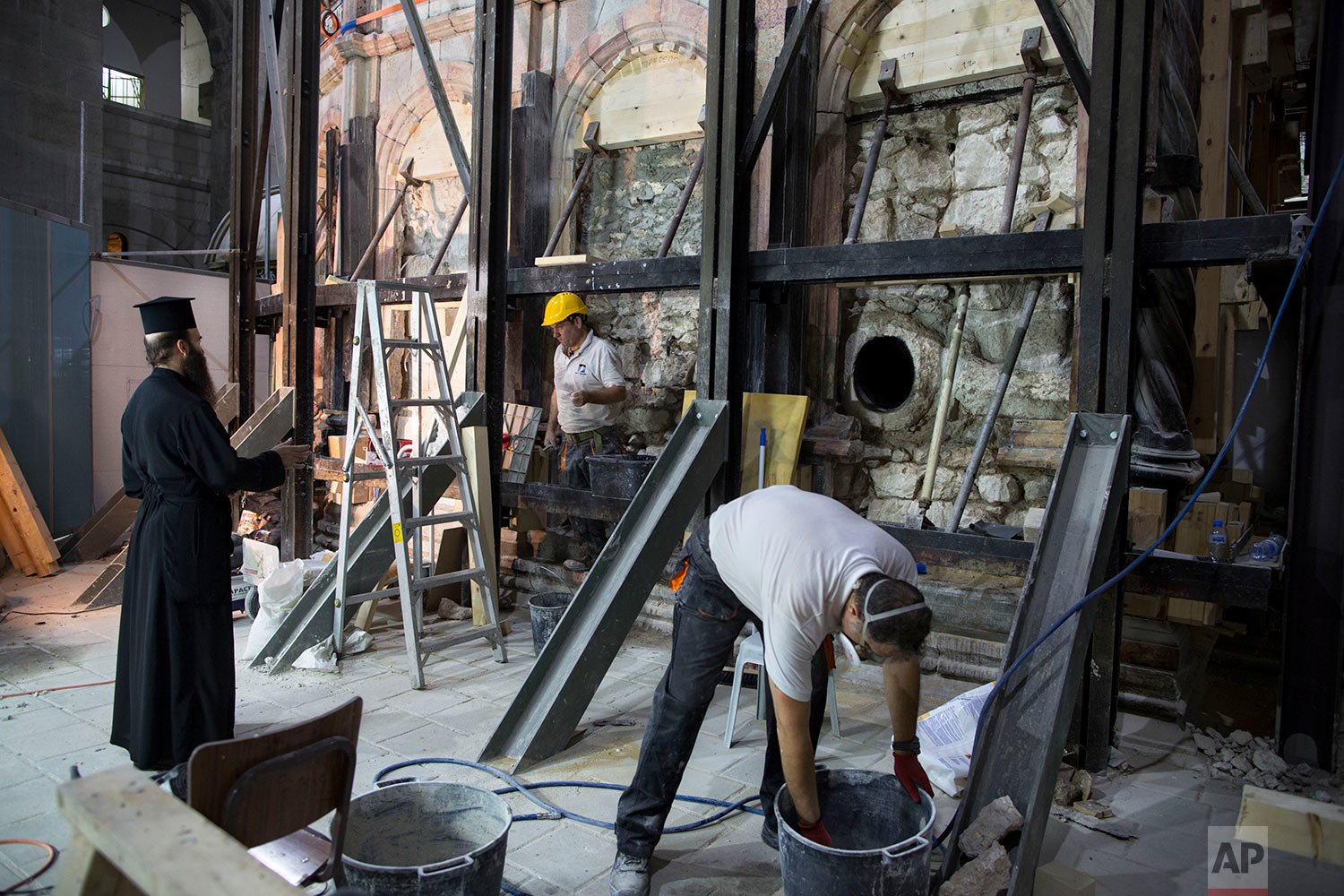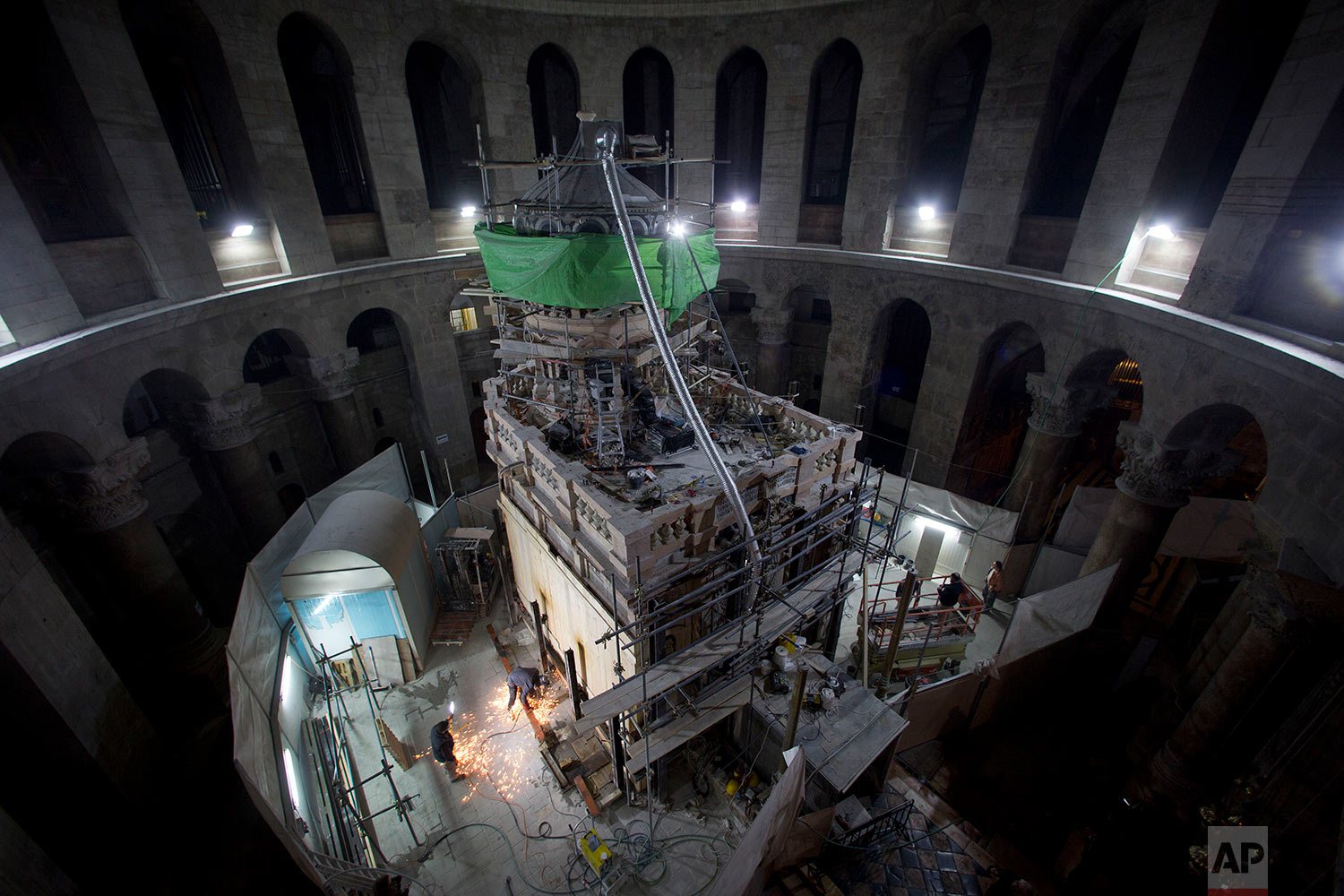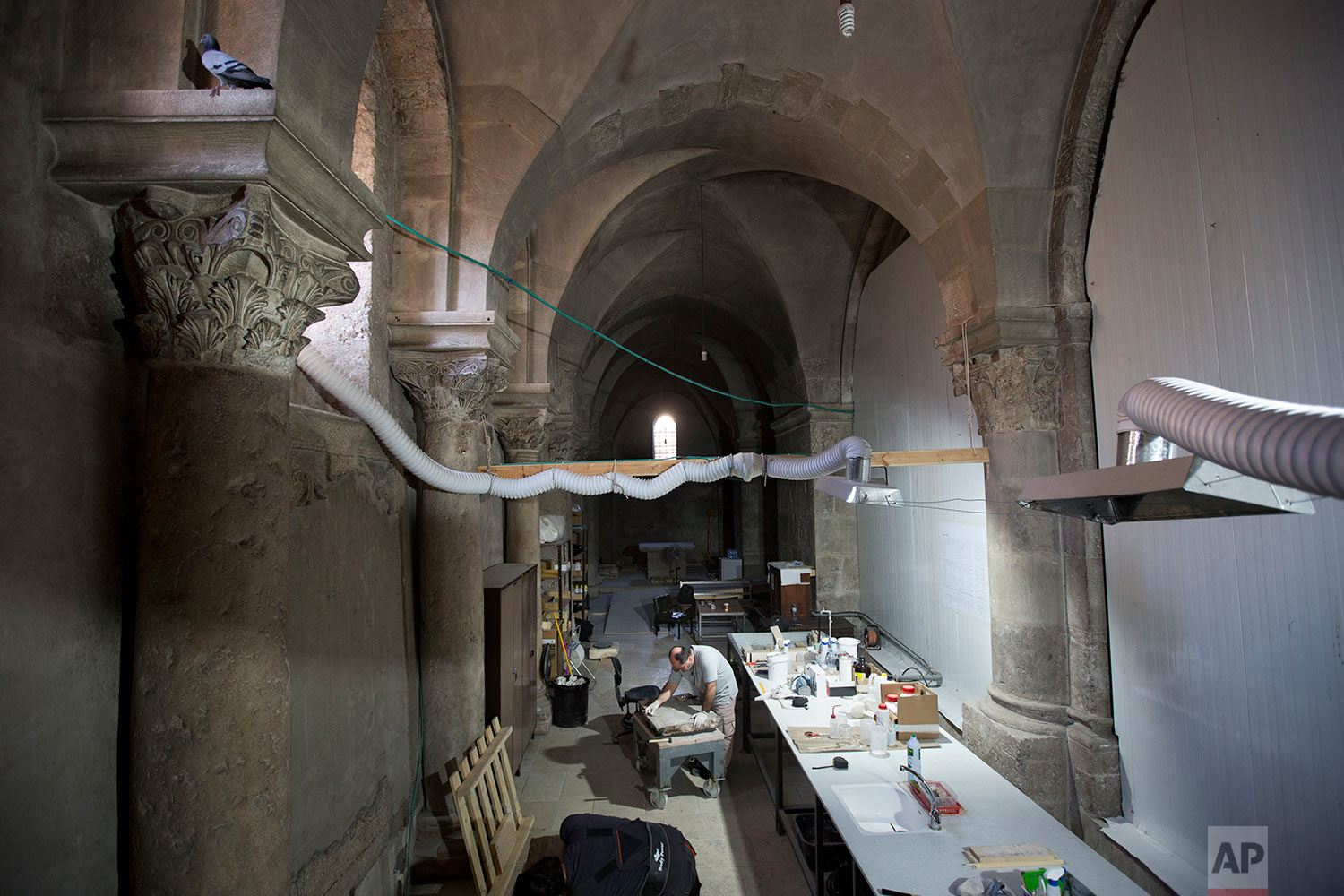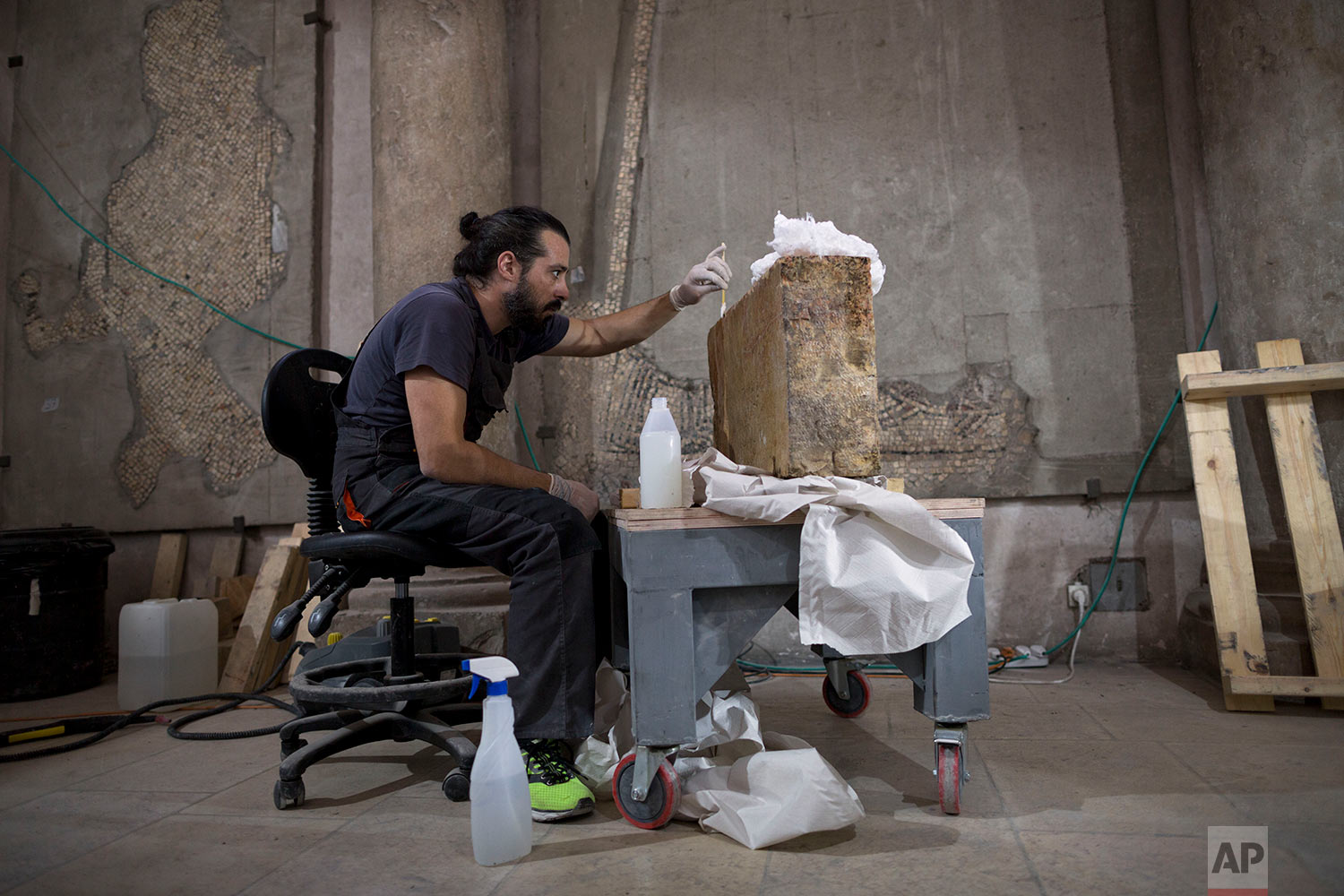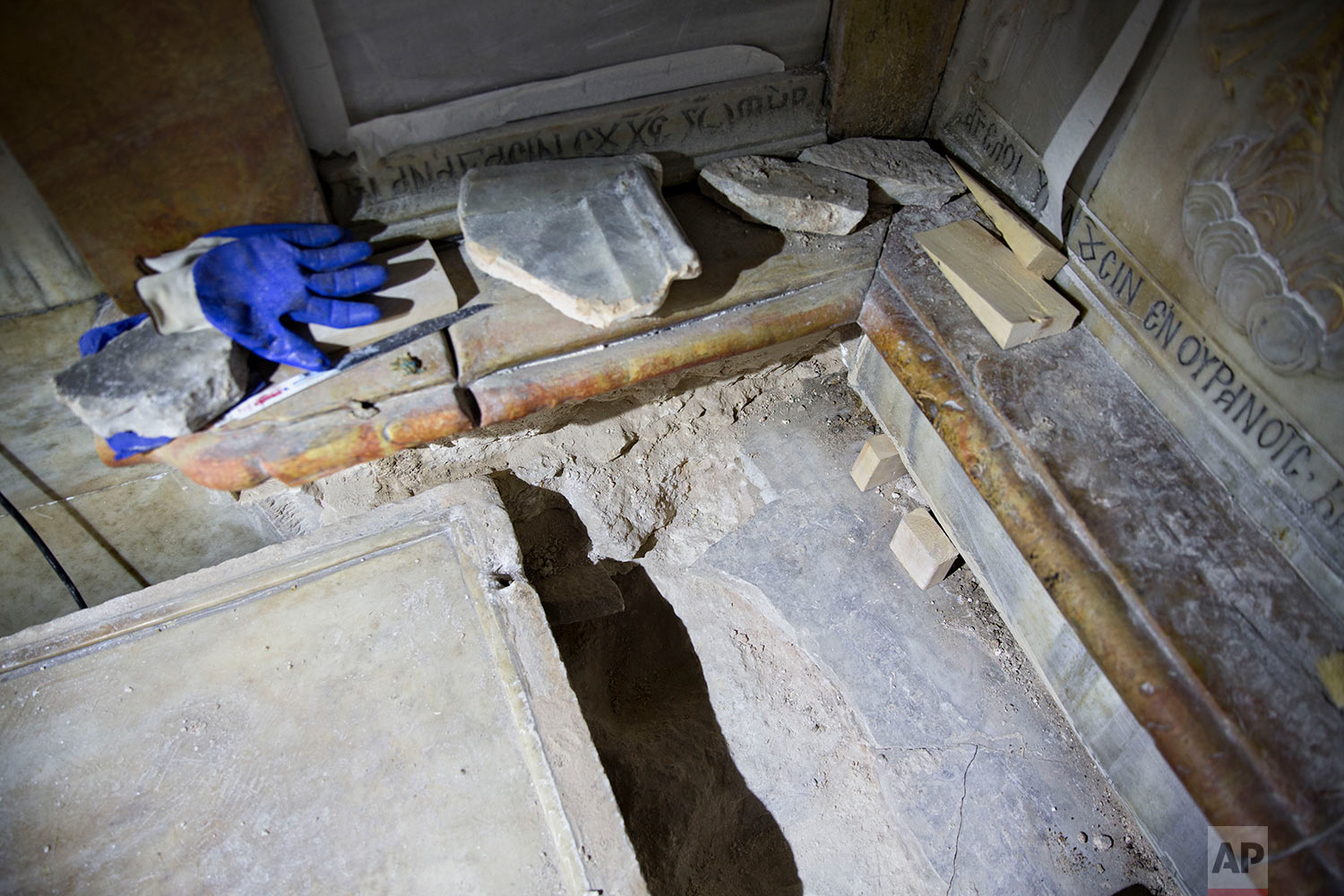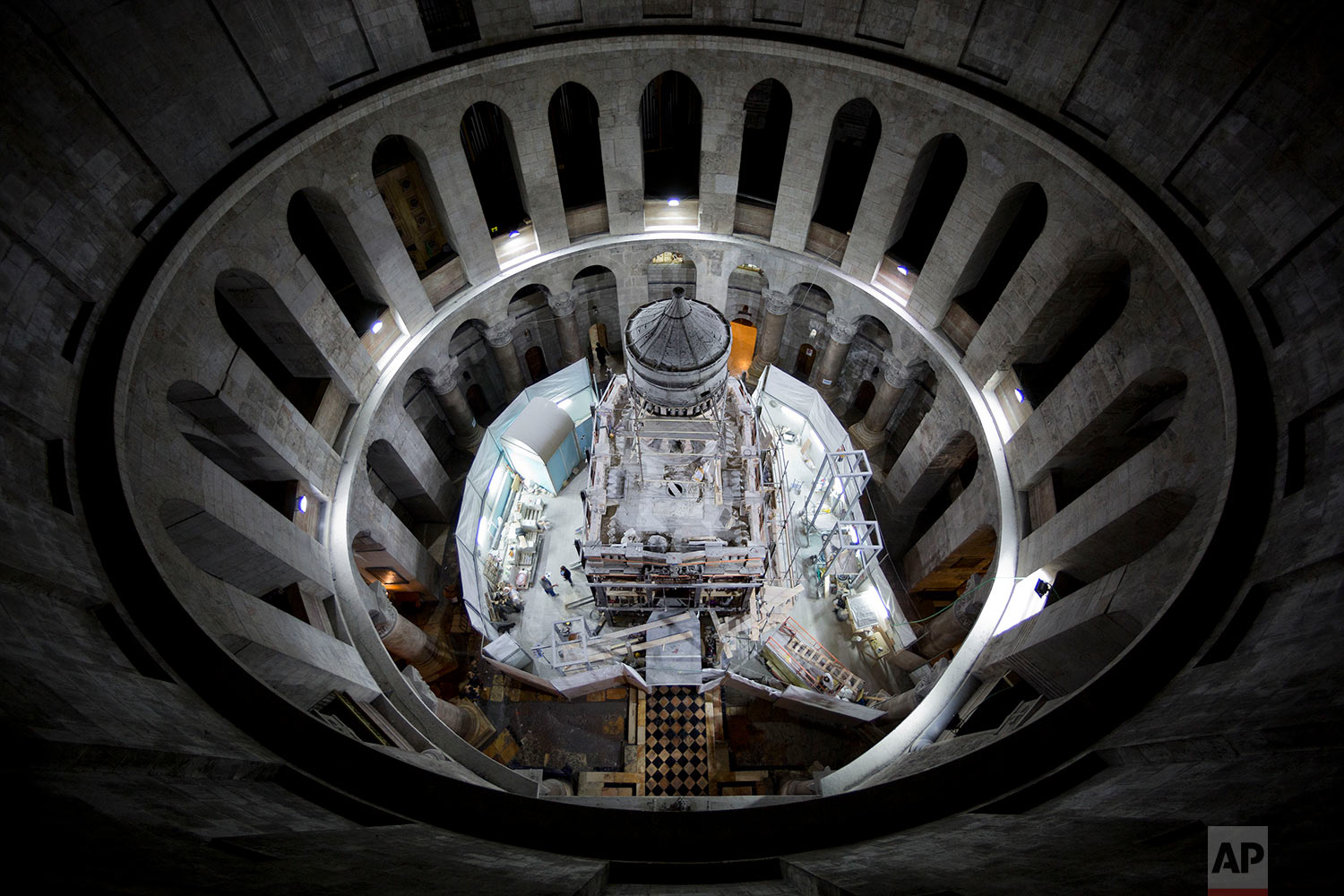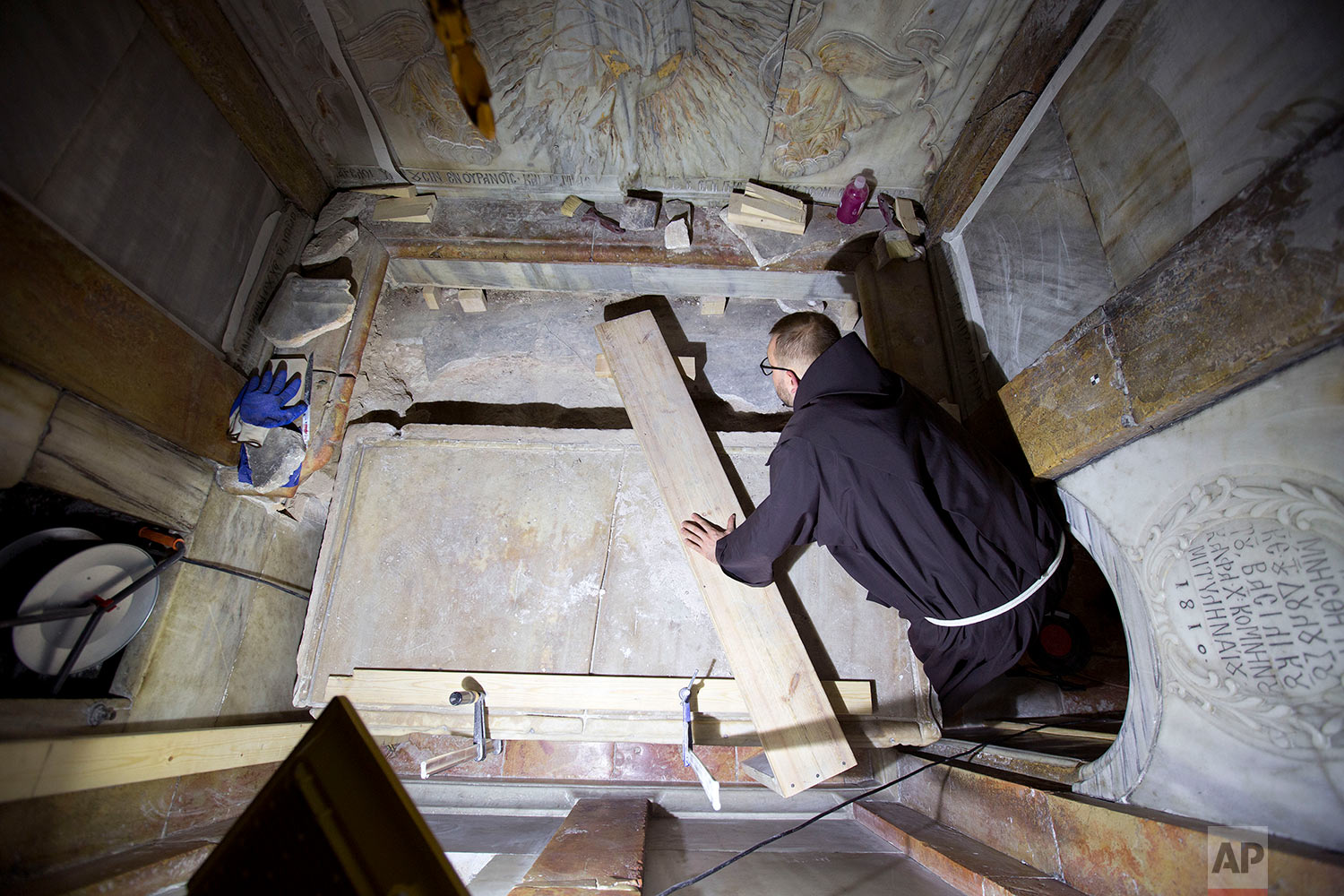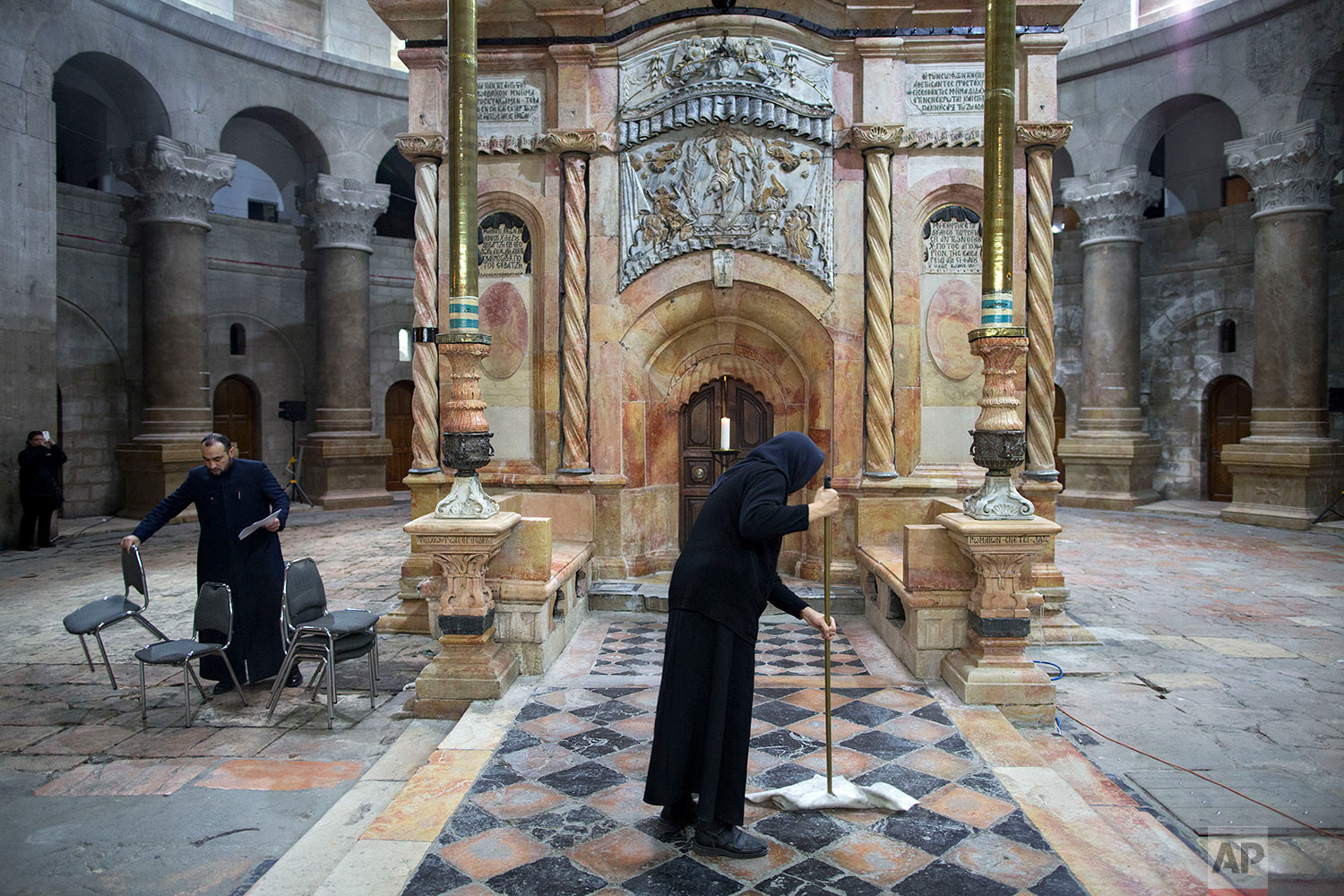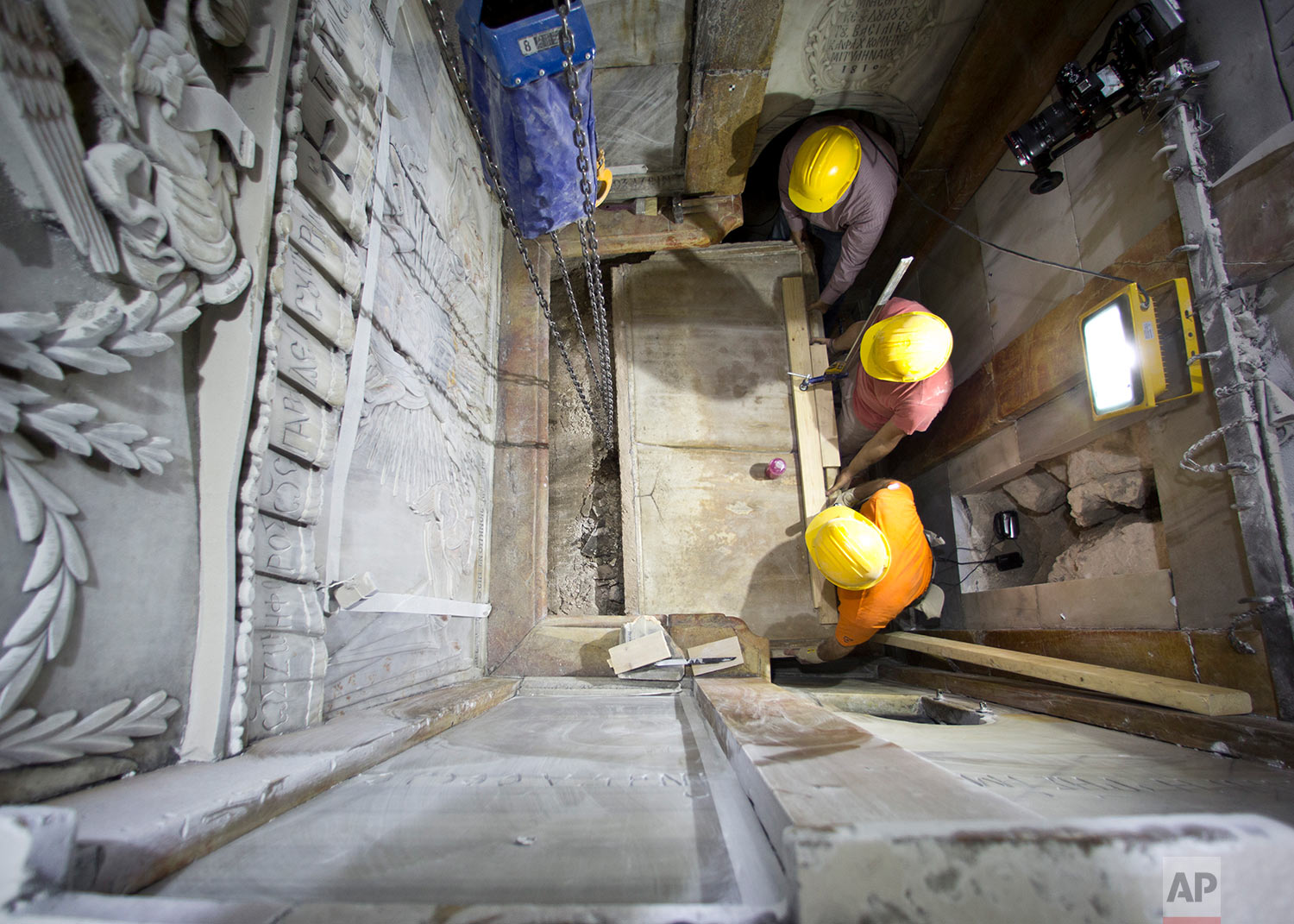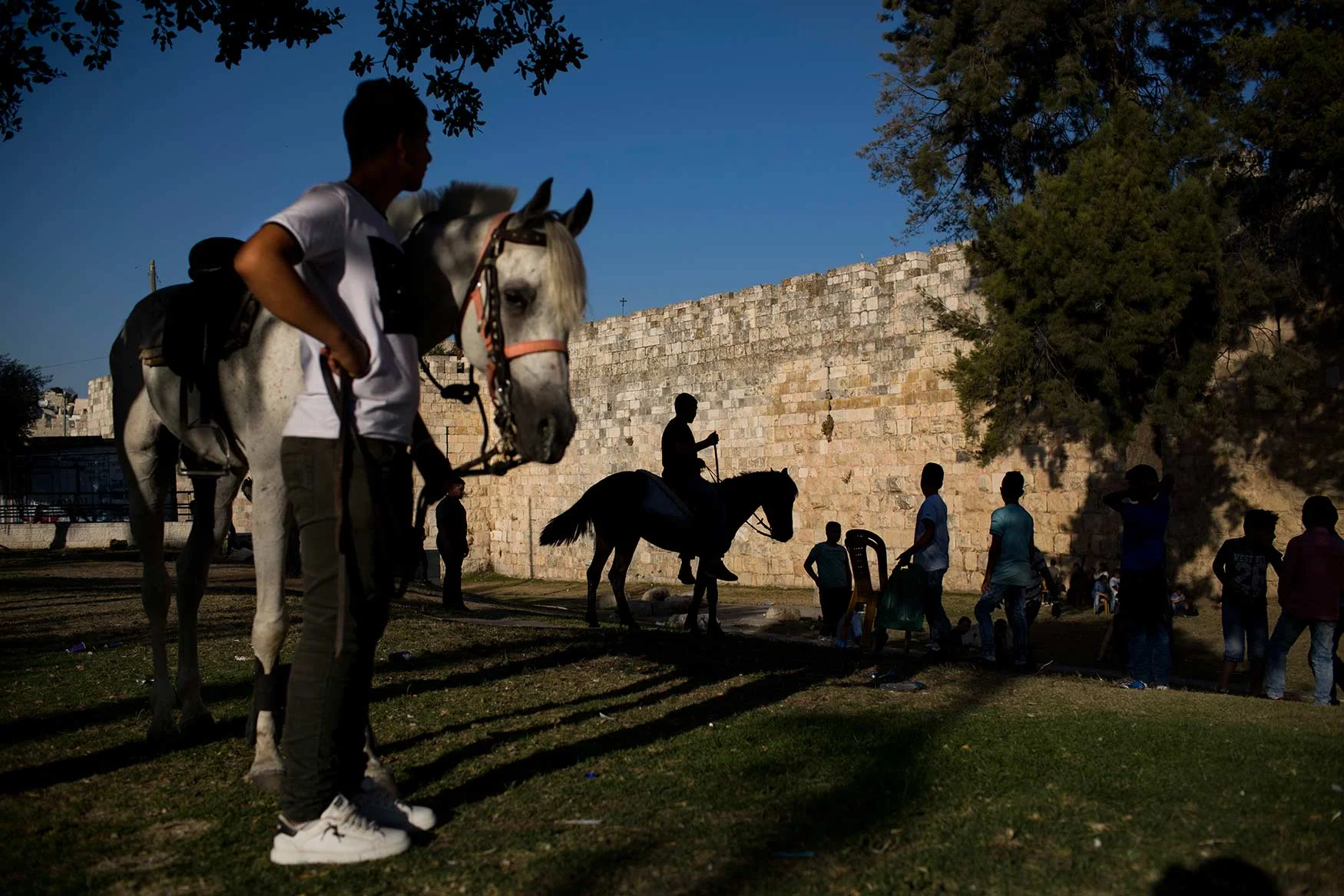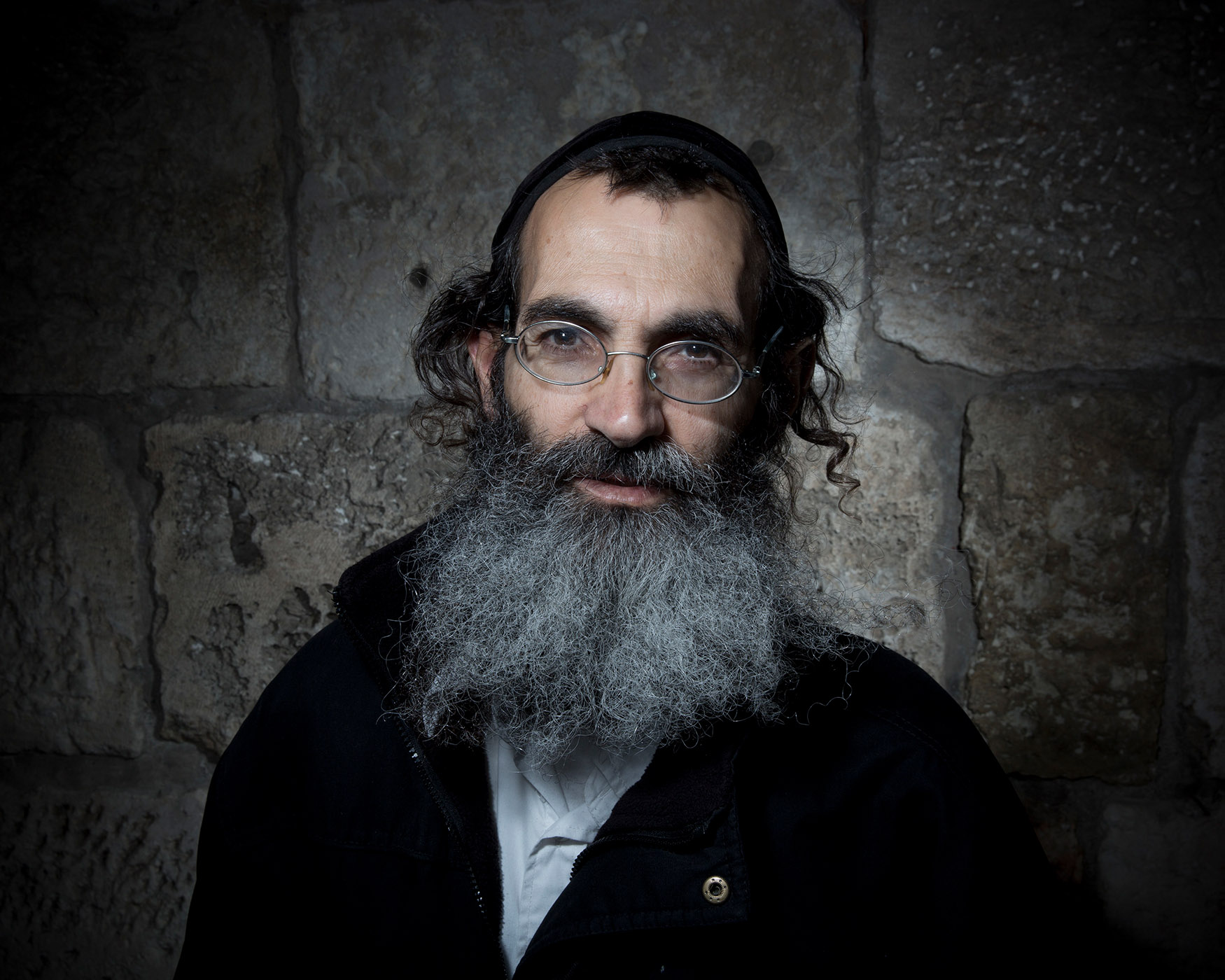Renovation of church sheds light on ancient mysteries
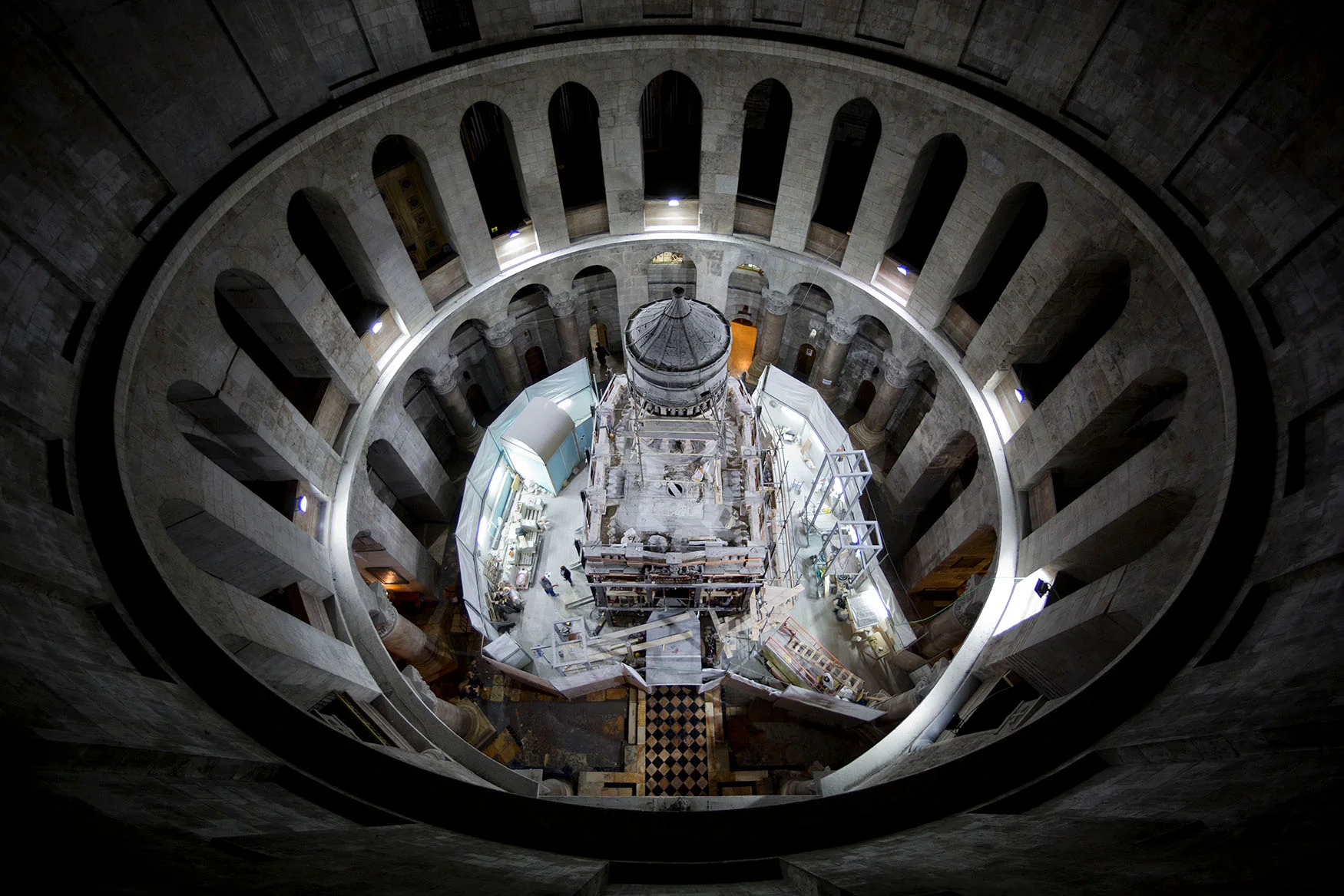
In the innermost chamber of the site said to be the tomb of Jesus, a restoration team revealed what it believes is the original rock surface where Jesus’ body was laid.
Jerusalem’s Church of the Holy Sepulchre is where many historians have long believed that the original cave, identified a few centuries after Jesus’ death as his tomb, was obliterated ages ago.
But an archaeologist accompanying a restoration team in 2016 said ground penetrating radar tests determined that cave walls are in fact standing — at a height of six feet and connected to bedrock — behind the marbled panels of the chamber at the center of Jerusalem’s Church of the Holy Sepulchre.
National Geographic partnered with Greek restoration experts to document the work in 2016 and 2017.
“What was found,” said National Geographic archaeologist Fredrik Hiebert, “is astonishing.”
A 12th-century building sitting on 4th-century remains, the Church of the Holy Sepluchre is the only place where six Christian denominations practice their faith at the same site. The church was recently closed and reopened due to a dispute over taxes.
Text from the AP news story, Experts uncover hidden layers of Jesus’ tomb site, by Daniel Estrin.
AP photographer Oded Balilty covered the restoration for National Geographic.
Photos by Oded Balilty and Dusan Vranic
Visual artist and Journalist

